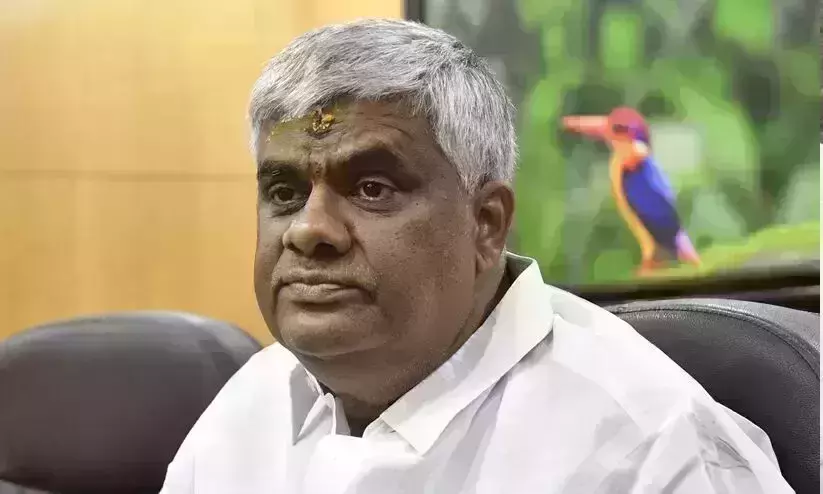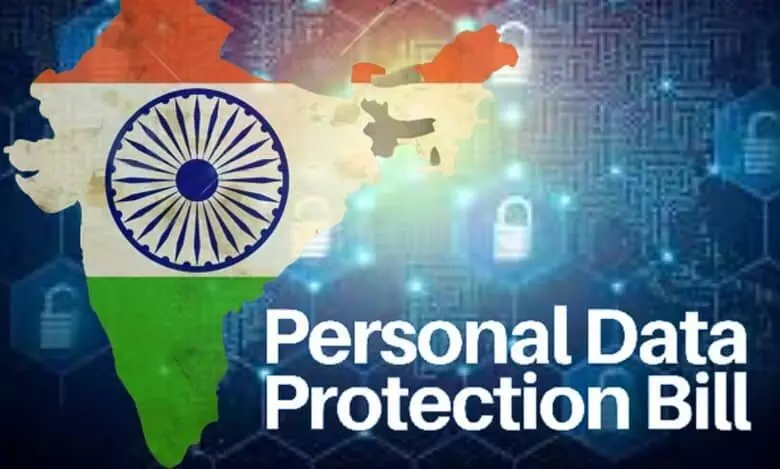
Experts warn RTI Act may be weakened by Digital Personal Data Protection Bill amid opposition in LS
text_fieldsNew Delhi: On Thursday, the contentious Digital Personal Data Protection (DPDP) Bill, 2023, was discussed in the Lok Sabha. The bill was opposed by the INDIA group, who also demanded that the government reconsider its decision, prompting a commotion in the House.
Many organisations are worried that the proposed legislation would curtail the Right to Information Act's (RTI Act) ability to uphold the fundamental right to access government information.
Further concerns are raised since the law is perceived as an effort to weaken the Data Protection Board's authority. The ability of citizens to minimise the use of their personal information, which can be abused to target specific people, communities, and organisations, is another possibility noted by experts.
In November 2022, the Digital Personal Data Protection Bill's initial draft was finished. The bill's introduction on July 5 has received Cabinet approval.
What is Personal Data Protection Bill?
The new DPDP Bill aims to provide detailed regulations to guarantee that an individual has more control over their information. The Indian government wants to increase data privacy and give people more control over their data.
Data will be gathered by means of data fiduciaries, which are people or organisations responsible for processing, maintaining and securing personal data. They are accountable both ethically and legally for protecting personal data.
The measure will have a major effect on India's trading relations with other nations, particularly those with the European Union, whose data protection law is regarded as one of the strictest in the world.
Evolution of the Data Protection Bill
In 2017, the Supreme Court of India included the right to privacy as a fundamental right. In July 2018, a committee headed by retired SC judge BN Srikrishna submitted the first draft of the Personal Data Protection Bill to the Narendra Modi-led central government suggesting data fiduciaries. It proposed additional rules for fiduciaries. In this way, the Data Protection Board could handle privacy effectively. In December 2019, the Personal Data Protection Bill is introduced in Lok Sabha and the Joint Parliamentary Committee (JPC) is formed to review the Bill.
The JPC concludes that the bill was more in line with the interests of the Central government than with those of the people in 2022 and offers 81 modifications and 12 recommendations.
The law was previously introduced in the Parliament, where opposition parties sharply criticised it for giving the Centre wide rein to utilise data in "non-personal ways" under the privacy tagline.
The bill was withdrawn in August 2022.
A new version that incorporates all of the JCP's suggestions would be drafted, according to Union IT Minister Ashiwni Vaishnaw.
“After the JCP presented the report, it took us a few months. That was the only time we could have even started on a new draft or think about what to do with it (old draft). Our intent is absolutely crystal clear. What we are doing is basically in line with what the Supreme Court has told us to do,” said Vaishnaw.
“I fully understand that there has been a delay in this, but the subject was too complex. We could have withdrawn it, let’s say, four months back, but we needed a little bit of deliberation before biting the bullet,” he added.
The draft of the bill was made available for public consultation in November 2022.
The DRDP draft for 2023 was approved by the Union cabinet on July 5 of this year.
Concerns surrounding the bill
The new bill is said to have few changes from the previous version thus raising grave concerns regarding data privacy. Here are some of them:
Dependent Data Protection Board: The new bill states that the central government holds the authority to select the members of the Personal Data Protection Board, thus compromising its independence. This way, it can influence the board on which information should be disclosed and which should not, raising apprehensions about its effectiveness in safeguarding data privacy.
Less people-friendly: The new Bill is ‘digital by design’, meaning if a citizen from any financial and educational background needs information, they would have to submit their queries or complaints digitally. In India, where the percentage of internet accessibility is relatively low, this Bill is not people-friendly.
Heavy penalty: If an individual/organisation has access to the internet and needs a piece of certain public-related information, the government can choose to refuse under the ‘breach of privacy’ issue. At this point, the government can levy a heavy monetary penalty of up to Rs 500 crore on the individual/organisation.
Effect on RTI: The most important concern is the Bill provides wide exemptions to the central government and its agencies. In the name of ‘national security concerns’, the centre and its agencies can refuse to give data or crucial information. In other words, RTI powers will be diluted.
How it impacts RTI
Since the Right to Information (RTI) Act was passed in 2005, citizens have had access to data and information from governmental agencies and other domains, promoting transparency and accountability.
However, under Section 8 (1) (j), the government can refuse to give information provided if the information sought has no relationship to any public activity or has no connection to any public interest, or the information sought is such that it would cause unwarranted invasion of privacy and the information officer is satisfied that there is no larger public interest that justifies disclosure.
The bill will increase the exemptions, allowing the government and agencies complete discretion over whether to withhold information. In other words, the RTI's primary transparency feature will be reduced.
Former central information commissioner Yashovardhan Azad stated in this The Wire article: “If the proposed Bill is passed, the central and state governments will refuse to give information such as corruption related etc, in the name of ‘privacy issue’.
“If people do not have the right to know what loss happened due to a corrupt action of an official or the government, what is the use then?” said Azad adding that the courts would be the last hope for the right to information.
























